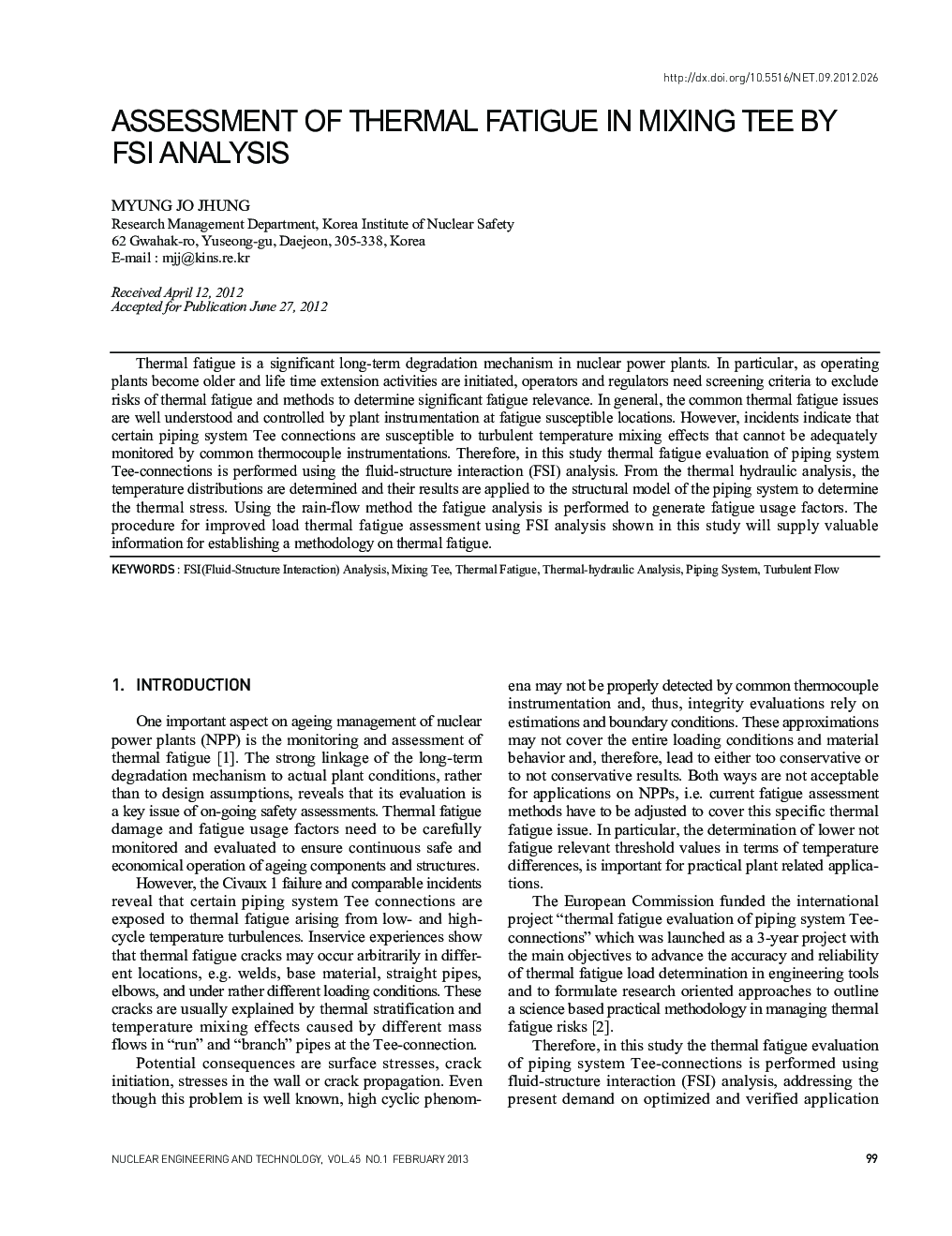| Article ID | Journal | Published Year | Pages | File Type |
|---|---|---|---|---|
| 1740258 | Nuclear Engineering and Technology | 2013 | 8 Pages |
Abstract
Thermal fatigue is a significant long-term degradation mechanism in nuclear power plants. In particular, as operating plants become older and life time extension activities are initiated, operators and regulators need screening criteria to exclude risks of thermal fatigue and methods to determine significant fatigue relevance. In general, the common thermal fatigue issues are well understood and controlled by plant instrumentation at fatigue susceptible locations. However, incidents indicate that certain piping system Tee connections are susceptible to turbulent temperature mixing effects that cannot be adequately monitored by common thermocouple instrumentations. Therefore, in this study thermal fatigue evaluation of piping system Tee-connections is performed using the fluid-structure interaction (FSI) analysis. From the thermal hydraulic analysis, the temperature distributions are determined and their results are applied to the structural model of the piping system to determine the thermal stress. Using the rain-flow method the fatigue analysis is performed to generate fatigue usage factors. The procedure for improved load thermal fatigue assessment using FSI analysis shown in this study will supply valuable information for establishing a methodology on thermal fatigue.
Related Topics
Physical Sciences and Engineering
Energy
Nuclear Energy and Engineering
Authors
MYUNG JO JHUNG,
